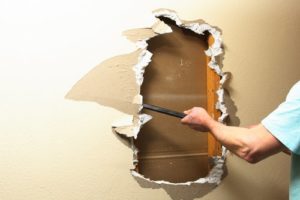 A new class action brought by Eduardo and Carmen Amorin on behalf of over 3,000 active U.S. homeowner litigants against Chinese defendants who sold drywall to American consumers has been filed in a Louisiana federal court1. Attorneys for the new action have taken steps to force the Chinese into Court, following action on July 17, 2014 by a U.S. District Court that held Chinese companies in contempt for attempting to flee jurisdiction.
A new class action brought by Eduardo and Carmen Amorin on behalf of over 3,000 active U.S. homeowner litigants against Chinese defendants who sold drywall to American consumers has been filed in a Louisiana federal court1. Attorneys for the new action have taken steps to force the Chinese into Court, following action on July 17, 2014 by a U.S. District Court that held Chinese companies in contempt for attempting to flee jurisdiction.
Class representatives filed the new class action in the United States District Court for the Eastern District of Louisiana. Each was an active litigant in prior Omnibus Class Action Complaints2. That action consolidated different suits into one proceeding known as a multi-district litigation. The new suit adds SASAC, the Chinese State-Owned Assets Supervision and Administration Commission in that litigation. Existing defendants include a group of companies that SASAC owns or controls known as the “Taishan Entities.”3 The suit seeks compensatory, statutory, and punitive damages allowed by law as well as other relief against SASAC and the Taishan Entities arising out of their sale of defective drywall to American consumers across the United States.
“The suit has important implications as it will test whether Chinese government-owned companies who face adverse legal judgments will fire their attorneys and flee the jurisdiction of courts or respect the rule of law and judicial processes,” said lead counsel.
Arnold Levin of the Philadelphia-based law firm of Levin Fishbein Sedran & Berman. He said also: “This historic case raises landmark grave legal and moral issues. Can those who do business with Chinese companies or the Chinese government trust them to keep their word or to honor their legal duties and responsibilities?”
Levin added: “This case has implications far beyond this controversy, in which a federal court has taken unprecedented action in holding Chinese companies in civil and criminal contempt for refusing to show up in court and banning them from doing business in the United States until they comply with their responsibilities. Chinese businesses claim the moral high ground when they do business. But who can afford the risk of doing business with people who disrespect judicial process?”
Levin’s co-counsel, Leonard Davis of the New Orleans-based law firm Herman, Herman & Katz, added: “The Chinese government itself owned these companies. A federal court has already found as fact that it calls the shots for them4. China’s behavior should alarm business people all over the world about the risk of doing business with its government-owned companies. If they will flee the jurisdiction in this case, they’ll do it with any other case.”
A U.S. District Court entered a preliminary default judgment against Taishan Entities China National Building Materials Group Corporation (CNBM Group), and Beijing New Building Materials (Group) Co., Ltd. (BNBM Group), China National Building Material Co. Ltd (CNBM), Beijing New Building Materials Group Co., Ltd. (BNBM) after they declined to appear in court and defend a series of lawsuits filed over those claims. The District Court and the U.S. Fifth Circuit Court of Appeal upheld a money judgment and made a finding that the Taishan Entities were subject to U.S. court jurisdiction. Ordered by U.S. District Court Judge Eldon Fallon to appear in court on July 17, 2014 for a Judgment Debtor Examination as to the default judgment, Taishan fired its attorneys and refused to show up. The new lawsuit adds SASAC as a new defendant to the existing multi-district litigation.
The Court responded by holding Taishan Entities in civil and criminal contempt, declaring their behavior “a direct contemptuous act” that “harms both many other parties in this case and the decorum of the Court.” The Court branded Taishan’s misbehavior an “affront to the Court’s dignity,” required Taishan to pay $15,000 in attorney’s fees to Plaintiff’s counsel who had sued Taishan and slapped it with $40,000 as a penalty for contempt. It enjoined Taishan, its affiliates, or subsidiaries from “conducting any business in the United States until it participates in this judicial process.”
The Court stated that if Taishan violates the injunction, “it must pay a further penalty of 25% of the profits earned by the Company or its affiliates who violate the order, for the year of the order.”
1. Eduardo and Carmon Amorin, Individually, and on behalf of all others similarly situated v. The State-Owned Assets Supervision of the State Council, et al., Case No. 2.14-cv-1727, United States District Court for the Eastern District of Louisiana.↩
2. Gross, et al. v. Knauf Gips, KG, et al., Civ. Action No. 09-6690 (E.D.La.); Wiltz, et al. v. Beijing New Building Materials Public Limited Co., et al., Civ. Action No. 10-361 (E.D.La); Haya, et al. v. Taishan Gypsum Corp. Ltd., et al., Civ. Action No. 11-1077 (E.D.La.); Almeroth, et al. v. Taishan Gypsum Co., Ltd., et al., Civ. Action. 12-0498 (E.D.La.); Amorin, et al. v. Taishan Gypsum Co., Ltd. f/k/a Shandong Taihe Dongxin Co., Ltd., et al., Civ. Action No. 11-1672 (E.D.La.); Amorin, et al. v. Taishan Gypsum Co., Ltd. f/k/a Shandong Taihe Dongxin Co., Ltd., et al., Civ. Action No. 11-1395 (E.D.La); Abel, et al. v. Taishan Gypsum Co., Ltd., Civ. Action No. 11-080 (E.D.La.).↩
3. These include Taishan Gypsum Co., Ltd f/k/a Shandong Taihe Dongxin Co., Ltd; Beijing New Building Materials Public Limited Co; China National Building Materials Group Corporation; Beijing New Building Materials (Group) Co., Ltd; China National Building Material Company, Limited; and Taian Taishan Plasterboard Co., Ltd. (TTP).↩
4. See: In Re Chinese Manufactured Drywall Products Liab. Litig., 895 F. Supp.2d 819 (E.D. La. 2012), and can be accessed on-line at: http://www.yourlawyer.com/pdf/Chinese_Drywall_Findings-of-Fact-and-Conclusions-of-Law-Germano.pdf., pp. 10-11. In this ruling, the Court pierced the SASAC’s corporate veil.↩
Free Case Evaluation
More About HHK
Related News
We proudly extend our congratulations to five exceptional attorneys on […]
The holiday season is a time for joy, compassion, and […]
Herman, Herman & Katz congratulates three of its attorneys for […]
We are thrilled to announce that Herman, Herman & Katz […]
This year, Herman, Herman & Katz again sponsored the New […]







